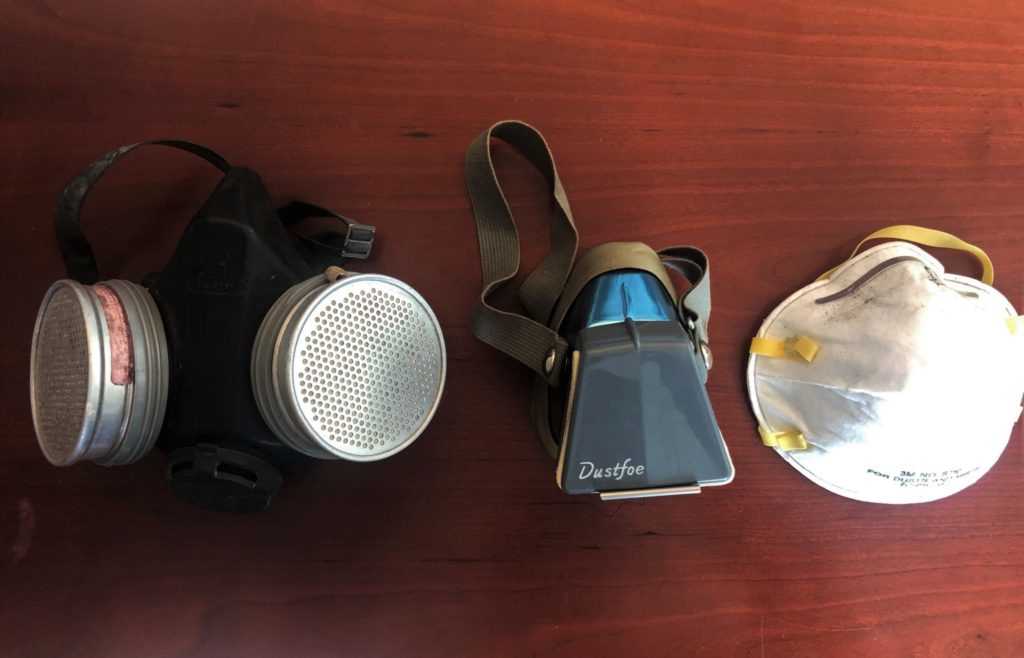As the world confronts the novel coronavirus (and its associated illness, COVID-19), we are becoming more aware of how masks and respirators can, potentially, protect us from airborne contaminants. Individual respiratory protection devices have been around for over a hundred years. From the use of gas masks to protect soldiers from mustard gas in World War I, to masks used to protect health care workers from pathogens, we have relied on masks to prevent the inhalation of harmful substances.
The coronavirus relief bill enacted into law this week, the Families First Coronavirus Response Act, included a limitation of liability for respirator (i.e., N95 mask) manufacturers that will be in place until October 1, 2024. This new law bans health care workers and anyone else who wears an N95 mask from suing the manufacturers of those masks, as well as some other businesses involved in the respirator supply chain in coronavirus treatment. If the mask wearer subsequently develops an illness related to the 2019 novel coronavirus (2019-nCoV) or COVID-19 outbreak that the mask was intended to prevent, that person cannot bring a lawsuit for that illness. The immunity:
- Only applies for the duration of the COVID-19 public health emergency as declared by HHS (applicable through 2024)
- Only covers respirators that have an emergency use authorization issued by the FDA and
- Only extends to claims that have some relationship to treatment of COVID-19.
Further, on March 17, 2020, the Department of Health and Human Services submitted a Public Readiness and Emergency Preparedness (PREP) Act COVID-19 (coronavirus) declaration in the Federal Register for the following covered persons and countermeasures:
- Covered Persons: manufacturers, distributors, program planners, qualified persons, healthcare providers, and their officials, agents, employees. It also includes any person authorized to prescribe, administer, or dispense countermeasures.
- Countermeasures: any drug, diagnostic, device, or vaccine used to treat coronavirus, or any device used in the administration of any such product, and all components and constituent materials of any such product.
The time period for temporary immunity will be the final day the emergency declaration is in effect, or October 1, 2024, whichever occurs first.
The PREP Act also creates a measure much like worker’s compensation, called the Countermeasures Injury Compensation Program (CICP). CICP will provide benefits (which can include compensation for unreimbursed medical expenses, lost employment income, and/or survivor death benefits) to certain individuals or estates of individuals who sustain serious physical injuries or death as the direct result of a countermeasure.
Masks and respirators have also been used to protect workers from harmful dusts, such as silica and asbestos. However, not all masks or respirators are created equal. A mask does not provide the same level of protection as a respirator. In fact, in the world of industrial hygiene, the term “mask” has been designated for use only to prevent inhalation of nuisance dusts: dusts that do not pose a serious health risk. “Respirators”, on the other hand, are designated for use with harmful substances. These designations have often been confused, and the risks can be severe.
Some masks and respirators have been marketed and sold for protection against particular substances, such as asbestos, that they were not designed for. Others were just defectively designed and were ineffective at protecting workers as intended. Sometimes the respirators included valves that leaked, and certain masks were not properly designed to create a good fit against the face.
OSHA (Occupational Health and Safety Administration), NIOSH (National Institute for Occupational Safety and Health) and the U.S. Bureau of Mines have regulated the effectiveness, categorization and selection of respirators in specific work settings. These regulations have not always been followed closely.
Thornton Law Firm LLP has extensive experience in litigating dozens of asbestos cases against the manufacturers of defective masks and respirators. We have gone to trial and successfully settled these respirator cases. We know that just because a worker may have worn a mask or respirator while working with asbestos or any other industrial dust, it does not mean he or she was properly protected. The immunity for mask manufacturers under the PREP Act is limited to masks currently being manufactured in response to the COVID-19 crisis and should have no effect on litigation regarding asbestos. If you have contracted an asbestos-related disease after using a defective mask or respirator, we can help. Call Thornton Law Firm LLP at 888-491-9726 for a free consultation with an experienced attorney.
